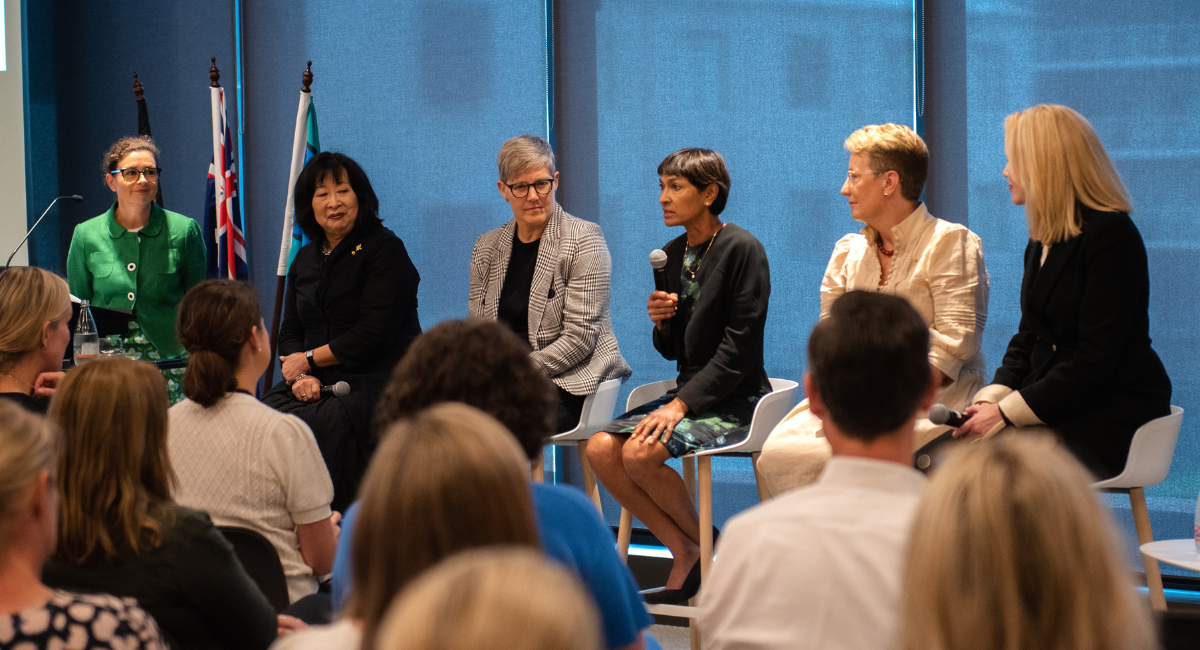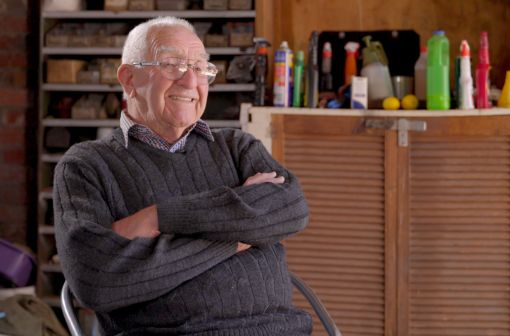“Australian Unity’s work, purpose, products and services reflect our whole community, of which 50 percent are women. You can only truly serve your community by representing diversity on your board and throughout your organisation.”—Lisa Chung AM, Board Chair, Australian Unity
Key points
- Just one in four organisations have a gender-balanced leadership team—Australian Unity is determined to be among the "ones".
- Creating a diverse and inclusive workplace has improved Australian Unity's organisational performance—but the impact extends well beyond the organisation into the wider community.
- Australian Unity is building a gender-inclusive organisation through a focus on representation at the executive and board level, flexible working policies, paid parental leave and a commitment to monitoring its remuneration policy for gender bias.
Melinda Honig clearly remembers her first job. Australian Unity's Group Executive, Governance, was a 17-year-old casual at an Australian retail fashion house where women held leadership roles in head office and most of the stores. Melinda didn’t realise it then, but what she was witnessing was an organisation that was ahead of the times with its diverse and gender-inclusive culture. That experience would make a massive impact on her future career expectations.
“Later, when I entered the legal profession, I felt I’d taken a step backwards,” she says. “It wasn’t a gender-inclusive space at all. Most senior members were men and the majority of partners were male. Women were only just starting to break in at that level.”
Despite this, Melinda knew there were clear criteria to reach the top of the profession—support and serve your clients well, be productive and accountable. Outside the legal space, however, she observed that pathways to leadership for women were often vague, arduous and, at times, out of reach. There were very few role models.
According to the Workplace Gender Equality Agency (WGEA), 48 percent of the Australian workforce is made up of women, but only 22 percent of CEOs are female. And only one in four Australian organisations have a gender-balanced leadership team. At Australian Unity, we're determined to remain one of the "one in fours".

The value of gender-inclusivity
Currently, the eight-person Australian Unity board has five members who are women, including its Chair and Deputy Chair. In addition, women make up 37 percent of senior leadership roles, with the latter figure having climbed steadily over the last five years. It's a situation Melinda attributes to “action from the top”.
“Both our Group Managing Director and Chair saw that diversity at the table leads to richer and better decision-making, so they championed and drove that change throughout the organisation,” she says. “It’s led to improved organisational performance with a greater emphasis on people development, role-modelling behaviour, and a more participative decision-making process.”
But the impact extends far beyond performance. "Achieving in life" is integral to our Real Wellbeing—and it's often driven by our work. By creating an inclusive and diverse organisation, we're working to support the wellbeing of our employees and the Australian community as a whole.

Creating impact within the community
For Lisa Chung AM, Chair of the board, prioritising diversity in the workplace is one important way for an organisation to have a solid and meaningful impact on its community.
“Australian Unity’s work, purpose, products and services reflect our whole community, of which 50 percent are women,” she says. “You can only truly serve your community by representing diversity on your board and throughout your organisation.”
Melinda agrees. As she sees it, promoting gender equality within an organisation has far-reaching consequences.
“The changes women have strived for and achieved have benefited not only them but the whole community,” she says. “The progress of women is the progress of Australia.”
Developing flexible and inclusive workplace policies
According to WGEA, 12.3 percent of women in Australia identify as a caregiver, and women make up seven out of 10 primary carers. In many workplaces, women caregivers are less likely to work in a full-time capacity and more likely to face discrimination for their presumed lack of commitment to their career.
This unconscious bias is what board member Dr Helen Nott wants to see disappear by having more women in leadership. Helen says: “By having strong female representation on the board, we can start to change an endemic system. I have daughters and I want all daughters to have equal and fair access to opportunities. That's why it's so important.”
At Australian Unity, we're supporting our caregivers by offering flexible working options that mean our employees never have to choose between caring for a loved one and a career. And, in July 2022, we introduced 14 weeks paid parental leave for all employees—a policy that Melinda calls “a real game changer” for both women and men.
There’s also the Welcoming Difference Policy, which aims to strike a meaningful balance of women across all levels of the organisation and ensures our remuneration policy is consistently reviewed for gender bias.
.jpg?h=650&w=1200&hash=16C680C53F7B7438CC891ED5EC6BA5F3)
The importance of role models
Believing in a dream is easier when you can see someone like you who’s already living it. It’s why board member Su McCluskey can’t overemphasise the importance of having women in key leadership roles.
“They become role models for other women,” she says simply. “The make-up of Australian Unity’s board sends a strong message, not just to our colleagues, but to everyone.”
A diverse team of decision-makers also leads to diversity in thought, which in turn births fresh ideas and clever solutions. Melinda Cilento, Deputy Chair of the board, believes that this changes the culture of the board, which in turn nurtures broader diversity throughout Australian Unity.
“The culture we build and the opportunities we create are fundamental to the whole conversation around gender inclusivity,” she says. “It extends across everything we do.”
The work that still needs to be done to create a gender-inclusive world is tremendous. But like all change, it starts with small steps. And at Australian Unity, we've been taking those steps—thoughtfully, meaningfully and intentionally.
Speaking from experience
What do you wish you’d known as a young woman starting out in your career? Here, Australian Unity board members and executive leaders share what they've learnt along the way.
“Don't wait, just do it. And that applies in many different situations, even when you’re in doubt. But use your judgement around that."—Lisa Chung, Chair
“My mother told me to never give my boss a problem without a solution. That helped me understand that I had to always manage up.”—Melinda Cilento, Deputy Chair
“Not every career move is a move up. You need to make horizontal and diagonal moves to build a lattice framework that will support a deeper and broader career.”—Melinda Honig, Group Executive, Governance
“Dare to be dispensable. We often think we’re protecting ourselves if we make ourselves indispensable. But if you are indispensable then you can't be promoted or offered another role.”—Lucinda Brogden, Board Member
Disclaimer:
Information provided in this article is of a general nature. Australian Unity accepts no responsibility for the accuracy of any of the opinions, advice, representations or information contained in this publication. Readers should rely on their own advice and enquiries in making decisions affecting their own health, wellbeing or interest.


